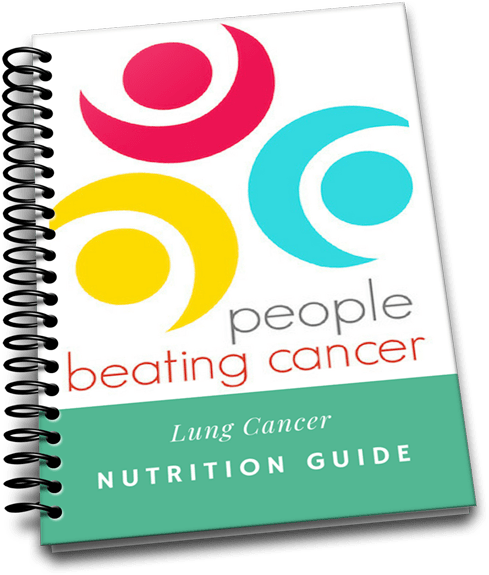Leave a Comment:
4 comments
[…] Vitamin B Serum Blood Levels as Lung Cancer Therapy […]
Reply[…] Vitamin B Serum Blood Levels as Lung Cancer Therapy […]
Reply
Learn about conventional, complementary, and integrative therapies.
Dealing with treatment side effects? Learn about evidence-based therapies to alleviate your symptoms.
Click the orange button to the right to learn more.

If, as the study below states, serum (blood) levels of vitamin B (B2, B6, folate [B9], and B12, methionine, and homocysteine) are inversely associated with lung cancer then it seems to me that if a person with lung cancer would want to increase his or her serum vitamin B levels. Further, as the second study cites, low vitamin B6 serum blood levels indicate a poor outcome for newly diagnosed lung cancer patients.
Again, I would think that LC patients would want to increase their vitamin B blood levels.
Please don’t misunderstand me. I’m not saying that taking a vitamin B supplement daily can cure LC. What I am saying is that LC is aggressive cancer with a poor five-year survival average. Therefore it is in the best interests of LC patients to apply any and all evidence-based therapies. Especially if these therapies are inexpensive, non-toxic and easy to do.
I am a long-term survivor of a completely different cancer called multiple myeloma. My cancer could not be more different than LC. However, the principle of utilizing many different evidence-based therapies to manage your health is what I have in common with LC patients. I supplement with vitamin D3 (1,000 mg x 3 daily), curcumin, resveratrol, green tea extract, and others. I have lived in complete remission from my “incurable” cancer since ’99 by living an evidence-based, non-toxic, anti-MM lifestyle through nutrition, supplementation, etc.
To learn more about evidence-based therapies for lung cancer, please watch the short video below:
Do you have lung cancer? What stage? Scroll down the page, post a question or comment and I will reply to you ASAP.
Thank you,
David Emerson
“Serum Levels of B Vitamins and Lung Cancer Risk- Case and control participants were subsequently compared for quartiles of serum levels of each of the four B vitamins, as well as homocysteine and methionine (Table 2).
After adjusting for matching variables and cotinine, a substantially lower risk for lung cancer was seen for increasing levels of B6 (fourth vs first quartile OR, 0.44; 95% CI, 0.33-0.60; P for trend <.000001). A lower risk was also seen for increasing methionine (fourth vs first quartile OR, 0.52; 95% CI, 0.39-0.69; P for trend <.000001). Moderate decreases in risk were seen for the second quartile of both B6 and methionine (second vs first quartile OR, 0.78 [95% CI, 0.60-1.01] and 0.88 [95% CI, 0.69-1.15], respectively), as well as for the third quartile (third vs first quartile OR, 0.53 [95% CI, 0.40-0.71] and 0.49 [95% CI, 0.36-0.65], respectively). Adjustment by additional variables including BMI, educational attainment, and alcohol consumption did not modify the results (Table 2), and neither did simultaneous adjustment of each analyte (Table 2). Excluding case participants who were diagnosed within 1 year after blood draw also provided very similar results (eTable 2).
Conclusion Serum levels of vitamin B6 and methionine were inversely associated with risk of lung cancer.”
“In line with a general role of vitamin B6 in stress responses, low PDXK expression levels were found to be associated with poor disease outcome in two independent cohorts of patients with NSCLC.
These results indicate that PDXK expression levels constitute a biomarker for risk stratification among patients with NSCLC…”
[…] Vitamin B Serum Blood Levels as Lung Cancer Therapy […]
Reply[…] Vitamin B Serum Blood Levels as Lung Cancer Therapy […]
Reply